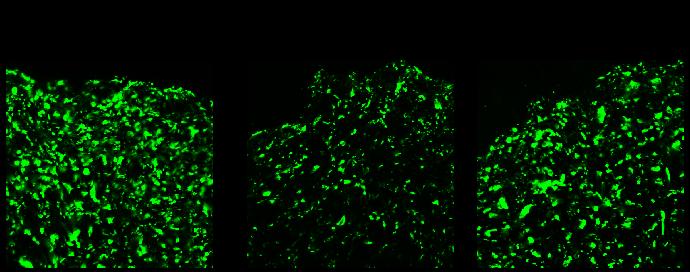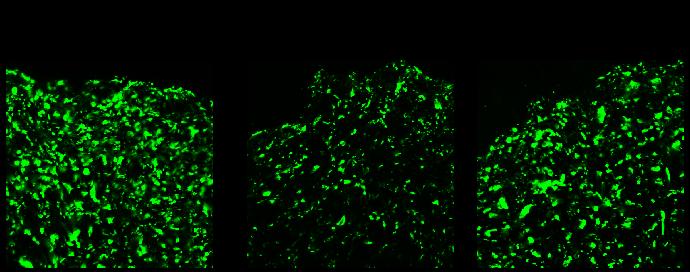
Credit: Osaka University
Osaka – Neuromyelitis optica (NMO), also known as Devic's disease, is a central nervous system disorder that primarily affects the eye nerves (optic neuritis) and the spinal cord (myelitis). It occurs when the body's immune system produces autoantibody in the central nervous system. Autoantibodies are antibodies that target one or more of the individual's own proteins. Most patients with NMO present severe clinical symptoms, such as blindness in one or both eyes, weakness or paralysis in the legs or arms, and painful spasms.
At present, there is no cure for NMO, and no medications have been specifically approved to treat it. This critical gap has motivated a team of researchers from Osaka University to discover new therapeutics against NMO.
"Recently, a role for the protein repulsive guidance molecule-a (RGMa) in the immune system has become apparent. Inhibiting RGMa with its antibody in multiple sclerosis (MS) in rats promotes motor recovery after spinal cord injury and improve disease scores," explains Kana Harada, lead author of the team's study recently published in Scientific Reports. "Because NMO and MS are both immune-mediated neurodegenerative diseases with broadly comparable symptoms, we hypothesized that anti-RGMa antibody may have a suppressive effect on NMO."
The team started off by developing a new rat model that mimics the pathology of intractable NMO by the injection of the antibody NMO-immunoglobulin G (IgG) into the spinal cord. NMO is characterized by the presence of the serum autoantibody NMO-IgG. In contrast to previous animal models of NMO that generally produced disseminated lesions, the new localized model has a single well-demarcated inflammatory lesion, allowing precise investigation of the correlation between the lesion with the deficit in motor function disrupting the corticospinal tract.
"We are excited to find in rats that developed optic neuritis, relaxation of neurological symptoms was observed by suppressing RGMa using humanized monoclonal anti-RGMa antibody antibodies," corresponding author Yuki Fujita says. "Also, the inhibition of RGMa promotes restoration of injured neural networks, presumably leading to a delay in the progression of the secondary phase of NMO."
"Our findings support the potential of humanized anti-RGMa antibody as a valid therapeutic approach. We expect this antibody to be further explored as a new therapeutic agent NMO," co-author Toshihide Yamashita notes.
###
Osaka University was founded in 1931 as one of the seven imperial universities of Japan and now has expanded to one of Japan's leading comprehensive universities. The University has now embarked on open research revolution from a position as Japan's most innovative university and among the most innovative institutions in the world according to Reuters 2015 Top 100 Innovative Universities and the Nature Index Innovation 2017. The university's ability to innovate from the stage of fundamental research through the creation of useful technology with economic impact stems from its broad disciplinary spectrum.
Website: http://resou.osaka-u.ac.jp/en/top
Media Contact
Saori Obayashi
[email protected]
81-661-055-886
@osaka_univ_e
http://www.osaka-u.ac.jp/en
Original Source
http://resou.osaka-u.ac.jp/en/research/2018/20180109_1 http://dx.doi.org/10.1038/s41598-017-18362-2





